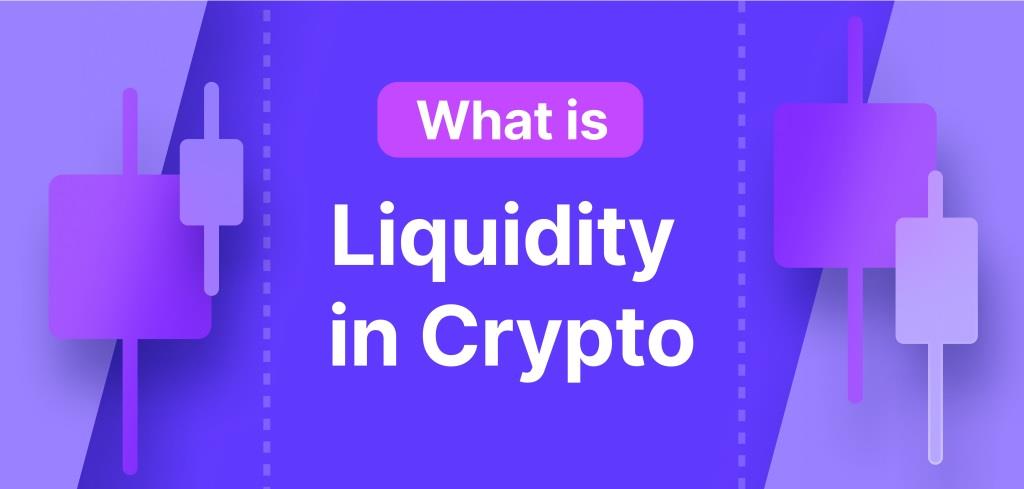Economy
Nodepay Airdrop: A Strategic Move or Just Another Token Giveaway?

By Anastasia Chabaniuk
The crypto landscape is increasingly cluttered with airdrops, but Nodepay’s approach appears more calculated than most. By integrating with major exchanges like OKX and offering a browser extension, Nodepay is building an ecosystem rather than simply distributing tokens. The TU website analysis shows that projects with comprehensive utility frameworks surrounding their airdrops tend to retain value 60% longer than pure marketing-driven distributions.
Nodepay’s multi-phase airdrop ties token distribution directly to platform growth metrics and user engagement. Unlike many competitors who simply drop tokens to generate temporary hype, Nodepay has implemented a feedback loop where airdrop participation drives actual product adoption.
The integration with OKX provides Nodepay instant credibility, while the browser extension strategy mirrors successful models previously implemented by established projects like Brave.
What Is the Nodepay Airdrop and How Does It Work?
The Nodepay airdrop represents a calculated token distribution event where eligible users receive free tokens based on specific qualifying activities and wallet interactions. Unlike random giveaways, Nodepay has implemented a tiered qualification system that rewards users based on their engagement level with the platform’s ecosystem.
To qualify, users must complete several actions:
- Install and actively use the Nodepay extension for a minimum period
- Complete KYC verification through the official platform
- Hold a minimum threshold of cryptocurrency in compatible wallets
- Engage with the Nodepay ecosystem through transactions or staking
Cryptocurrency strategist Marcus Chen explains, “Nodepay’s qualification requirements serve dual purposes—they filter for genuine users while simultaneously encouraging platform familiarity.” The distribution formula reportedly weighs early adopters and consistent users more heavily, creating an incentive for sustained engagement rather than speculative participation.
The airdrop will be distributed across multiple phases, with tokens being released gradually to prevent immediate selling pressure. Integration with major exchanges like Nodepay OKX ensures that recipients have immediate liquidity options while maintaining token price stability through controlled distribution mechanisms.
Key Benefits of the Nodepay Airdrop for Investors
The Nodepay airdrop offers several strategic advantages for investors beyond the immediate token acquisition. By participating in this distribution event, investors position themselves on the ground floor of a potentially transformative payment ecosystem.
Primary benefits include:
- Early Ecosystem Access: Participants gain privileged positioning within the Nodepay network before wider adoption occurs
- Potential Governance Rights: Token holders may receive voting privileges on future platform developments
- Network Effect Advantages: Value appreciation correlates with user growth, benefiting early participants
Integrating the Nodepay extension and major exchanges like OKX creates a seamless experience for token management post-airdrop. Unlike many projects that struggle with liquidity, the OKX partnership potentially provides immediate trading options for participants seeking to optimize their positions.
For strategic investors, the airdrop represents an opportunity to diversify cryptocurrency holdings with minimal capital risk while maintaining exposure to innovation in the payment processing sector.
Is Nodepay’s Airdrop a Smart Growth Strategy?
Analyzing Nodepay’s airdrop from a strategic perspective reveals a multifaceted approach to ecosystem development. Unlike many token distributions focusing solely on creating short-term price action, Nodepay’s methodology appears designed for sustainable growth metrics.
The strategy leverages several key principles:
- Community Building: By requiring active participation through the Nodepay extension, the project filters for engaged users rather than opportunistic participants
- Product Adoption: The airdrop incentivizes direct interaction with core products, generating valuable user feedback before wider release
- Market Positioning: Partnership with established exchanges like OKX provides immediate credibility and liquidity pathways
From a network economics perspective, this approach creates positive feedback loops – each new participant increases platform utility, potentially attracting additional users. The requirement to use the Nodepay extension ensures that participants experience the actual product value proposition rather than merely speculating on future worth.
However, the actual test will be post-distribution retention metrics. Successful growth strategies convert airdrop participants into permanent ecosystem contributors through genuine utility and continuing engagement incentives.
Potential Risks and Concerns About the Nodepay Airdrop
Despite promising aspects, the Nodepay airdrop carries several risks that potential participants should carefully evaluate before commitment. The cryptocurrency landscape is littered with failed projects that initially generated significant excitement through token distributions.
Critical concerns include:
- Regulatory Uncertainty: Token distributions increasingly face regulatory scrutiny in multiple jurisdictions
- Dilution Risk: Future token releases could significantly impact value for early participants
- Adoption Barriers: The requirement to use the Nodepay extension could limit mainstream access
- Exchange Dependency: Over-reliance on specific partnerships like OKX creates potential centralization vulnerabilities
The project’s emphasis on the Nodepay extension also introduces technical risk factors, as browser extensions represent potential security attack vectors if not properly audited and maintained. Additionally, some participants report compatibility issues with specific operating systems when installing the required extension.

While the partnership with exchanges like OKX provides legitimacy, it also creates a dependency on third-party infrastructure that remains outside Nodepay’s direct control.
How to Claim the Nodepay Airdrop and Maximize Returns
Successful participation in the Nodepay airdrop requires a methodical approach that maximizes qualification potential while positioning for optimal post-distribution outcomes. The process involves several key steps:
- Preparation Phase
- Install the official Nodepay extension from authorized sources only
- Connect to supported wallets with appropriate transaction history
- Complete KYC verification if required (see Nodepay TU website for requirements)
2. Qualification Activities
- Conduct eligible transactions through the Nodepay platform
- Participate in OKX-Nodepay integrated features
- Maintain consistent activity throughout the qualification period
3. Post-Distribution Strategy
- Consider staking options for additional yield
- Participate in governance to enhance token utility
- Monitor market conditions for optimal position management
Anastasiia Chabaniuk – author and financial expert at Traders Union, advises: “The participants who typically extract the most value from airdrops like Nodepay’s are those who approach them as ecosystem entry points rather than one-time windfalls.”
For comprehensive guides on maximizing qualification scoring, users should reference the official Nodepay documentation and technical update bulletins. Community resources offer additional insights into optimizing participation strategies and post-claim management techniques.
Conclusion: Is Nodepay’s Airdrop Worth Your Attention?
The Nodepay airdrop represents an interesting case study in token distribution strategies that attempts to balance marketing objectives with genuine ecosystem development. While many airdrops in the cryptocurrency space ultimately deliver limited long-term value, Nodepay’s structured approach and integration with established platforms like OKX suggest more substantial foundations.
For potential participants, the decision ultimately depends on individual investment objectives and risk tolerance. Those willing to engage actively with the platform through the Nodepay extension and complete the required qualification steps may find value beyond the immediate token acquisition. The partnership with OKX potentially provides an immediate utility that many airdrop projects lack.
However, prudent participants should maintain realistic expectations and understand that even well-designed airdrops carry inherent risks. The most successful approach combines opportunistic participation with careful evaluation of the underlying project fundamentals, team credentials, and market positioning.
As with all cryptocurrency projects, diversification remains essential – the Nodepay airdrop should represent just one component of a balanced digital asset strategy rather than a primary investment focus. By approaching the opportunity with clear objectives and appropriate due diligence, participants can maximize potential benefits while managing downside exposure.
About the Author
This article was written by Anastasia Chabaniuk. She brings 17 years of expertise in finance and content marketing to her advisory role. She firmly believes that investors and new traders thrive when equipped with reliable information and expert guidance.
Economy
Seven Price Gainers Boost NASD OTC Bourse by 2.19%

By Adedapo Adesanya
Seven price gainers flipped recent declines at the NASD Over-the-Counter (OTC) Securities Exchange, raising the alternative stock market by 2.19 per cent on Friday.
According to data, the market capitalisation added N51.24 billion to end N2.389 trillion compared with the previous day’s N2.338 trillion, while the NASD Unlisted Security Index (NSI) climbed 85.65 points to close at 3,994.32 points, in contrast to the 3,908.67 points it ended a day earlier.
Business Post reports that the advancers were led by MRS Oil Plc, which improved its value by N13.00 to N200.00 per share from N187.00 per share, FrieslandCampina Wamco Nigeria Plc gained N7.40 to settle at N91.55 per unit versus the previous day’s N84.15 per unit, Central Securities Clearing System (CSCS) Plc appreciated by N6.08 to N71.00 per share from N64.92 per share, Afriland Properties Plc added 66 Kobo to finish at N17.17 per unit versus N16.51 per unit, IPWA Plc rose 37 Kobo to N4.15 per share from N3.78 per share, First Trust Mortgage Bank Plc grew by 11 Kobo to N1.20 per unit from N1.09 per unit, and Food Concepts Plc went up by 10obo to N3.70 per share from N3.60 per share.
On the flip side, there were two price losers led by Geo-Fluids Plc, which depreciated by 28 Kobo to N3.32 per unit from N3.60 per unit, and Industrial and General Insurance (IGI) Plc dropped 5 Kobo to sell at 45 Kobo per share from 50 Kobo per share.
Yesterday, the volume of trades went down by 92.0 per cent to 3.7 million units from 45.8 million units, the value of transactions fell by 59.4 per cent to N84.5 million from N208.2 million, while the number of deals went up by 7.7 per cent to 42 deals from 39 deals.
CSCS Plc remained the most traded stock by value (year-to-date) with 32.6 million units exchanged for N1.9 billion, trailed by Geo-Fluids Plc with 119.6 million units valued at N470.3 million, and Resourcery Plc with 1.05 billion units traded at N408.6 million.
Resourcery Plc closed the day as the most traded stock by volume (year-to-date) with 1.05 billion units sold for N408.7 million, followed by Geo-Fluids Plc with 119.6 million units worth N470.3 million, and CSCS Plc with 32.6 million units worth N1.9 billion.
Economy
FX Demand Worries Weaken Naira to N1,346/$1 at Official Market

By Adedapo Adesanya
The Naira weakened further against the United States Dollar in the Nigerian Autonomous Foreign Exchange Market (NAFEX) on Friday, February 20, by N4.97 or 0.37 per cent to N1,346.32/$1 from the N1,341.35/$1 it was transacted on Thursday.
Heightened FX demand tilted the market toward the downside yesterday, exerting upward pressure on rates despite efforts by the Central Bank of Nigeria (CBN) to stabilise the foreign exchange market.
Also in the official market, the domestic currency depreciated against the Pound Sterling during the session by N9.39 to sell for N1,815.25/£1 versus the previous day’s N1,805.86/£1, and lost N7.33 against the Euro to close at N1,584.62/€1 compared with the preceding session’s N1,577.29/€1.
The story was not different for the Nigerian Naira at the GTBank FX desk, where it depleted against the Dollar by N7 on Friday to quote at N1,356/$1 versus the N1,349/$1 it was sold a day earlier, but remained unchanged in the black market at N1,370/$1.
It was observed that risky sentiment among Foreign Portfolio Investors (FPIs) contributed to the FX market, amid fears of hot money flight due to capital gains tax and other factors.
As for the cryptocurrency market, it was mostly green yesterday in reaction to a Supreme Court verdict dismissing a fresh 10 per cent global levy by President Donald Trump.
The apex court on Friday described Mr Trump’s global tariff rollout as illegal. The decision did not clarify what should happen to tariff revenue already collected, and it doesn’t necessarily spell the end of the trade agenda, with multiple legal and executive avenues still available.
Litecoin (LTC) grew 2.7 per cent to $55.00, Cardano (ADA) appreciated 2.6 per cent to trade at $0.2815, Binance Coin (BNB) expanded by 2.6 per cent to $627.19, Dogecoin (DOGE) recouped 1.3 per cent to quote at $0.1, Ripple (XRP) jumped 0.7 per cent to $1.43, Solana (SOL) improved by 0.5 per cent to $84.15, and Ethereum (ETH) soared 0.1 per cent to $1,962.78.
However, Bitcoin (BTC) lost 0.2 per cent to sell for $67,850.49, while the US Dollar Tether (USDT) and the US Dollar Coin (USDC) traded flat at $1.00 each.
Economy
Fidson, Jaiz Bank, Others Keep NGX in Green Territory

By Dipo Olowookere
A further 0.99 per cent was gained by the Nigerian Exchange (NGX) Limited on Friday after a positive market breadth index supported by 53 price gainers, which outweighed 23 price losers, representing bullish investor sentiment.
During the trading day, the trio of Jaiz Bank, Fidson, and NPF Microfinance Bank chalked up 10.00 per cent each to sell for N11.00, N86.90, and N6.27, respectively, while Deap Capital appreciated by 9.96 per cent to N7.62, and Mutual Benefits increased by 9.94 per cent to N5.42.
Conversely, Secure Electronic Technology shed 10.00 per cent to trade at N1.62, Sovereign Trust Insurance slipped by 9.73 per cent to N2.32, Ellah Lakes declined by 7.91 per cent to N12.80, International Energy Insurance retreated by 5.56 per cent to N3.40, and ABC Transport moderated by 5.26 per cent to N9.00.
Data from Customs Street revealed that the insurance counter was up by 2.52 per cent, the industrial goods sector grew by 2.28 per cent, the banking space expanded by 1.43 per cent, the consumer goods index gained 1.23 per cent, and the energy industry rose by 0.05 per cent.
As a result, the All-Share Index (ASI) went up by 1,916.20 points to 194,989.77 points from 193,073.57 points, and the market capitalisation moved up by N1.230 trillion to N125.164 trillion from Thursday’s N123.934 trillion.
Yesterday, investors traded 820.5 million stocks valued at N28.3 billion in 63,507 deals compared with the 898.5 million stocks worth N38.5 billion executed in 61,953 deals, showing a jump in the number of deals by 2.51 per cent, and a shortfall in the trading volume and value by 8.68 per cent and 26.49 per cent apiece.
Closing the session as the most active equity was Mutual Benefits with 79.0 million units worth N427.1 million, Zenith Bank traded 44.0 million units valued at N3.8 billion, Chams exchanged 43.9 million units for N182.0 million, AIICO Insurance transacted 42.4 million units valued at N179.8 million, and Veritas Kapital sold 36.0 million units worth N90.6 million.
-

 Feature/OPED6 years ago
Feature/OPED6 years agoDavos was Different this year
-
Travel/Tourism10 years ago
Lagos Seals Western Lodge Hotel In Ikorodu
-

 Showbiz3 years ago
Showbiz3 years agoEstranged Lover Releases Videos of Empress Njamah Bathing
-

 Banking8 years ago
Banking8 years agoSort Codes of GTBank Branches in Nigeria
-

 Economy3 years ago
Economy3 years agoSubsidy Removal: CNG at N130 Per Litre Cheaper Than Petrol—IPMAN
-

 Banking3 years ago
Banking3 years agoSort Codes of UBA Branches in Nigeria
-

 Banking3 years ago
Banking3 years agoFirst Bank Announces Planned Downtime
-

 Sports3 years ago
Sports3 years agoHighest Paid Nigerian Footballer – How Much Do Nigerian Footballers Earn




















